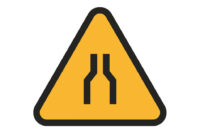Something to consider when reading/listening: How do you know for certain that you are not a fictional creation dreamt up by somebody else?
The writer took the mug of tea upstairs and placed it on the floor next to the shower.
“You’re a diamond,” said the plumber, removing the lid from the cistern. “Ere, what’s spooked you this time, fella? Been scaring yourself with your own ideas again have ya?” The writer smiled. He very nearly booked another plumber. This one had come round to fix his toilet twice now and had failed on both occasions. But he liked their conversations. He liked the fact that the plumber had taken the time to listen to his short story podcast. And, for a handyman, he was very perceptive. The writer had indeed become slightly “spooked” by some of his own writing and there was no one else with whom he could discuss the matter. “Oh dear,” said the writer, feigning indifference, “you’re not still listening to my stories, are you?” “I ain’t missed none of ‘em,” said the plumber. “In my line of work, there’s a lot of time to listen, i’nt there? I squeeze your stories in during the TalkSport ad breaks, truth be told.” He paused, smiled and shook his head. “God, it’s brilliant, ain’t it? Wouldn’t be able to do my job without it.” “Oh, golly,” said the writer, “that’s awfully… uhm… kind of you…” “The way Jim White and Simon Jordan inform the listener about what’s going on at the nation’s top football clubs while engaging in playful and, on occasion, edgy banter, it really is a joy to behold. Ere, some of your recent ideas have been a bit fruity, int they geez?” “Ah, well, uhm…” “A chatbot prime minister? An operation to remove your ability to speak? The chance to meet your little’uns before they’ve been conceived? I dunno where you get these ideas from mate but they ain’t half fruity.” “I… uhm… they just… that’s, in part, what I wished to… to discuss…” “I am relieved, I must say, that you’ve stopped them stories where a writer has a conversation with a plumber. I found them dull, meandering and quite offensive if I’m honest.” “Oh, I mean… well, they were… You found them offensive?” “Too right, me old mucker,” he said, adjusting his grubby dungarees and unclipping the plunger from his tool-belt, “Your stereotypical impression of a plumber, well it ain’t right, is it? I ain’t got no gruff accent, I don’t misuse no double negatives neither…” “Be fair,” said the writer, “In my efforts to differentiate between the two characters, I have exaggerated the genteel délicatesse of the writer synchronously with the pronounced gruffness of his confrère.” The plumber scratched his chin. “The writer just sounds like you, mate.” “You asked if I’d been scaring myself with my own ideas again,” said the writer. “Truth be told, I fear it’s a touch more concerning.” “Oh yeah?” said the plumber. “Fire away fella. I’m all ears.”“Do you remember the story I wrote about the overly enthusiastic woman who worked in the bank? Well, the strangest thing. I was in the bank last week and there she was. Informing me about the queuing system, asking for my feedback. She was exactly as I pictured her.” The writer paused, wondering if he should go on. “I went for dinner that same evening and the waiter started talking to me about the secret of consciousness. And not half an hour after I finished the last story, I saw a police officer chasing an Afghan hound up the road.” The writer looked troubled by the memory. “Now, of course, I’m not for one moment suggesting…”
“That your characters have leapt out of your imagination and into the real world, fella?” said the plumber. “You must think I’m being awfully silly.” “Your powers of creation extend beyond the page…” “I know, I know…” “You’re the new Morgan Robertson, are ya?” “It’s just I… sorry, Morgan…?” “I don’t think you’re being silly at all, squire. Not at all. Robertson. Morgan Robertson. He’s the writer what caused the Titanic.” “I’m sorry,” said the writer, “You’ve lost me.”The plumber stood up, sipped his tea and looked down at the writer with the manner of a professor addressing an ill-informed student. “Morgan Robertson,” he said. “Him the geez what wrote a novel, int he? Based on the sinking of The Titanic and whatnot. An ocean liner, the same size and specifications, collides with an iceberg in the North Atlantic Ocean and disaster ensues. He called his ship The Titan. Not very imaginative, ay? Until you realize his book was published in 1898. Fourteen years before the events he imagined came to pass in real life.”
The writer pulled a face and reached for the smartphone in his pocket. “Don’t fact-check me, mate,” said the plumber, “you can look it up later. It weren’t the iceberg or the poor design. It was Morgan Robertson what did it. So if you’re saying your stories are coming real, well, it wouldn’t be the first time.” “Sorry,” said the writer, “you’re saying you do believe my stories are springing into life. That my characters walk in flesh and bone upon the earth.” “Course I am,” said the plumber, “they all exist somewhere. If not in this world then another.” “All my characters exist?” The plumber sighed. “Are you gonna make me spell this out, me old mucker? Do you believe the universe is infinite?” The writer shrugged. “I’d have no way of knowing.” “Or, if not infinite, then one of an infinite number of universes?” “You’re asking the wrong person.” “But based on what you understand? All that cod science you’ve been reading for your stories?” “I suppose, on the balance of probability…” “Yes is the answer. It’s overwhelmingly likely the universe is either infinite or is one of an infinite number.” “I’m happy to concede that.” “It ain’t up to you mate. Or, hang about, maybe it is.” The writer smiled. “Either way,” said the plumber, “if infinity plays any role at all, as most scientists think it does, as do most plumbers for what it’s worth… that means that anything what can exist does exist. And so your bank clerk and your waiter and your cynophobic policeman and your robot prime minister and your woman who don’t wanna speak no more and your iguana and your guru and your world’s happiest person and everybody else…” The writer was touched that this mere handyman could remember so many of the characters from his stories. “They all,” said the plumber, “exist. As surely as you, me or the spear-fishing Polish hairdresser who gave me a short back and sides the other day.” The writer stared at him. “Only pulling your leg, fella, but she does exist somewhere.” “You really think so?” “I know so. Have you literally been seeing your characters in this world as you go about your travels? No, I very much doubt it. That probably is your mind playing tricks. But they are out there somewhere. Anything, literally anything, that can be dreamt up by the human mind will, in an infinite universe, exist. No imagination can compete with infinity. But here’s the weird part, right…” For emphasis, he took a step towards the writer. It wasn’t a large bathroom and the writer, somewhat pinned in the corner, had nowhere to move so the two of them were now slightly too close together. The writer could smell the full English breakfast on the plumber’s breath. “In an infinite universe,” said the plumber, “someone, somewhere is dreaming your life. Scene by scene, moment by moment.” The writer, trapped in the corner of his own bathroom, once again felt the compulsion to reach for his phone. “I told ya not to fact-check me,” said the plumber, taking a step back, “this one is pure logic. There’s no escaping it. In an infinite universe, all possible worlds must exist. We know it’s possible to imagine a fictional character exactly like you who lives every moment of his life the same way you live yours. And so, without any shadow of a doubt, we can say someone somewhere is imagining this scene right at this moment.” The writer pondered the implications. “So what you’re saying,” he said, with a slight twinge of excitement, “is that everything that ever happens is, on some level, a work of fiction dreamt up by a writer? And therefore… therefore… writers are… on some level… in some not entirely ridiculous sense… god?” The plumber smiled. “Now you are being silly.”He knelt by the toilet and returned to his work but he carried on speaking.
“Just because the ideas for these characters and these stories flowed through the slab of grey meat knocking around in your noggin,” he said, “it don’t mean they’re your ideas.” After fiddling around with something, he placed the lid back on the cistern. “Now, see, I might plumb in a toilet in your house, right? And a colleague might plumb in a toilet down the road. And they might seem like separate jons. But if you follow the pipes, you’ll arrive at the same source. It’s water. Water water everywhere. The same with ideas. It’s all one thing, rising up, sloshing around, flushing away.” (Sound of the toilet flushing). The plumber stood up, rubbed his grubby hands on his dungarees, re-clipped the plunger onto his toolbelt, and nodded at the toilet with respectful satisfaction. “Ah ok,” said the writer. “So, in your analogy, you’re saying a writer is not god but… but…but is in fact a…a plumber?” The plumber thought about this for a moment. “Nah. I’m saying a writer is a toilet. The plumber, in the analogy, is society itself. The writer or toilet is merely the conduit through which pure creativity aka water, having been tamed or riled by society, makes itself known.” The writer looked confused. “I’m saying don’t worry about your characters being real,” said the plumber. “They don’t belong to you in the first place and they’re only as real as you or me. Which is to say, not very.” This wasn’t the answer the writer had been expecting but it did make him feel glad he hadn’t gone with another plumber. “How’s the toilet looking?” said the writer.[Doe Wilmann first released this piece on his short story podcast, Meaningless Problems.]
The views expressed in this article are the author’s own and do not necessarily reflect Fair Observer’s editorial policy.
Support Fair Observer
We rely on your support for our independence, diversity and quality.
For more than 10 years, Fair Observer has been free, fair and independent. No billionaire owns us, no advertisers control us. We are a reader-supported nonprofit. Unlike many other publications, we keep our content free for readers regardless of where they live or whether they can afford to pay. We have no paywalls and no ads.
In the post-truth era of fake news, echo chambers and filter bubbles, we publish a plurality of perspectives from around the world. Anyone can publish with us, but everyone goes through a rigorous editorial process. So, you get fact-checked, well-reasoned content instead of noise.
We publish 2,500+ voices from 90+ countries. We also conduct education and training programs
on subjects ranging from digital media and journalism to writing and critical thinking. This
doesn’t come cheap. Servers, editors, trainers and web developers cost
money.
Please consider supporting us on a regular basis as a recurring donor or a
sustaining member.
Will you support FO’s journalism?
We rely on your support for our independence, diversity and quality.







Comment